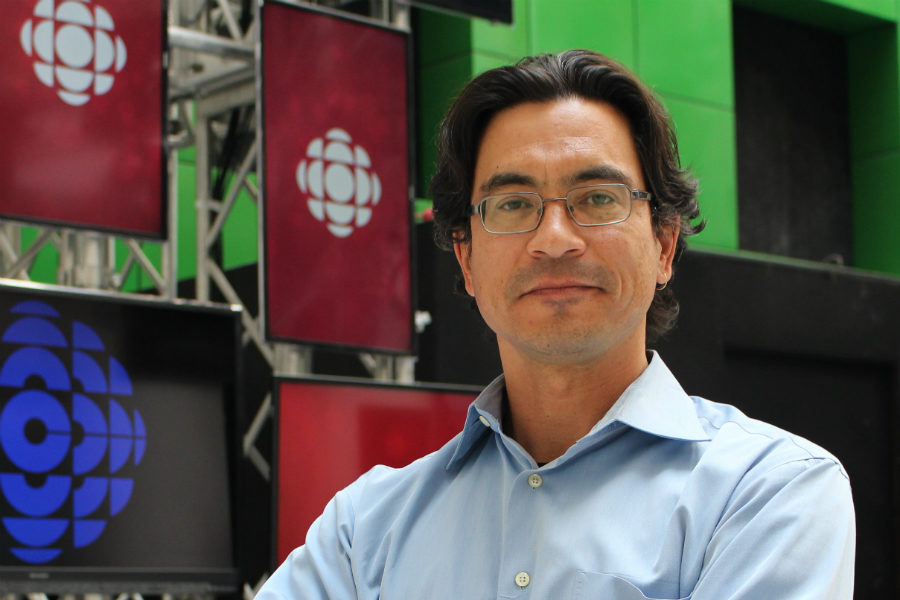Duncan McCue works with Ryerson J-School on curriculum for covering Indigenous issues
By Jasmine Bala for the Ryerson Journalism Research Centre
Reporters working in Canadian newsrooms should receive diversity training just like police officers and health workers do says Duncan McCue, the newly appointed Rogers Visiting Journalist at the Ryerson School of Journalism (RSJ).
McCue said the training is necessary because journalists who don’t understand Indigenous cultures can cause harm while reporting on these communities.
“The reason that police officers get cultural training is because if there’s a cultural misunderstanding in the middle of the street, someone could wind up getting shot. The reason why health workers get diversity training is because if someone is misunderstood … someone could die in an ER room over a cultural misunderstanding,” said McCue.
“But I would suggest that the impact of repeating stereotypes and misrepresentations in the mainstream media about cultural groups — in my case, Indigenous groups — is every bit as harmful as some of those dire situations that police and health workers face. So, it’s important that we as journalists have a cultural baseline when it comes to the communities we serve.”
McCue is Anishinaabe, a member of the Chippewas of Georgina Island First Nation in southern Ontario, an adjunct professor at the University of British Columbia (UBC) and the new host of CBC Radio One’s Cross Country Checkup. As a reporter for CBC’s The National, he was part of an award-winning CBC Aboriginal investigation into missing and murdered Indigenous women and girls.
In his capacity as the Rogers Visiting Journalist, McCue will work with Ryerson journalism instructors on developing new approaches for reporting on stories involving Indigenous communities. He will also assist in the revision of the RSJ’s curriculum.
Continue reading this on the Ryerson Journalism Research Website, where it was first published.

